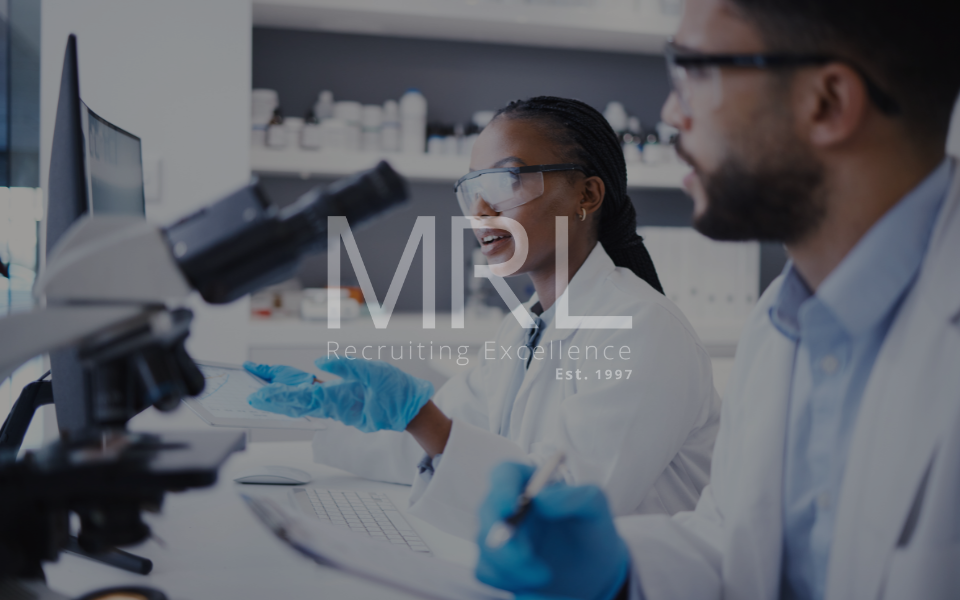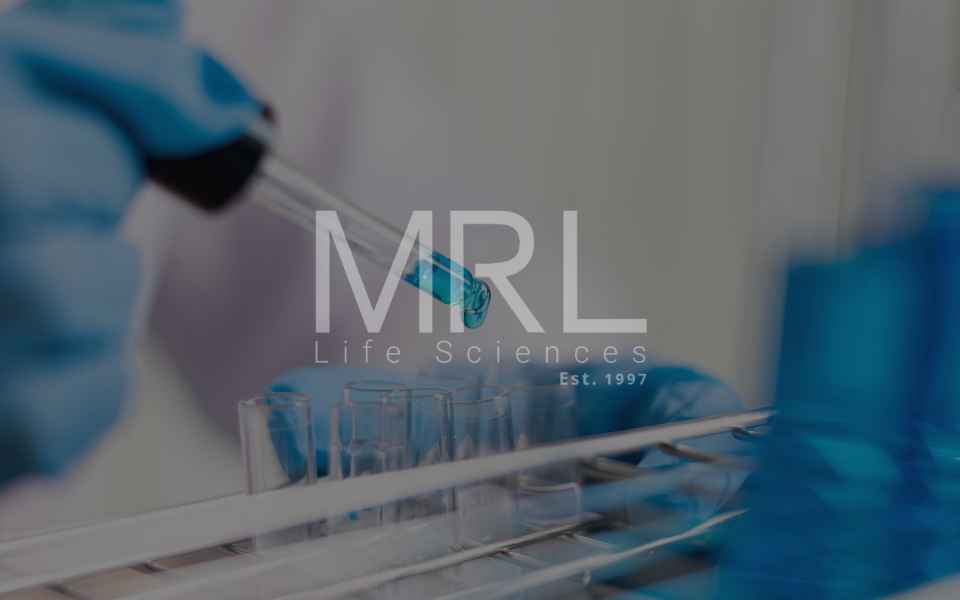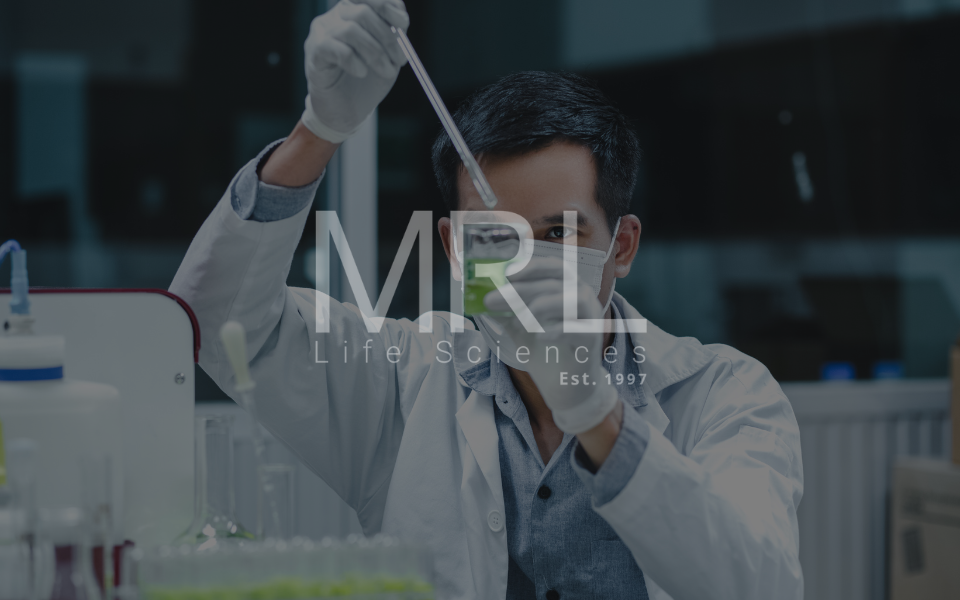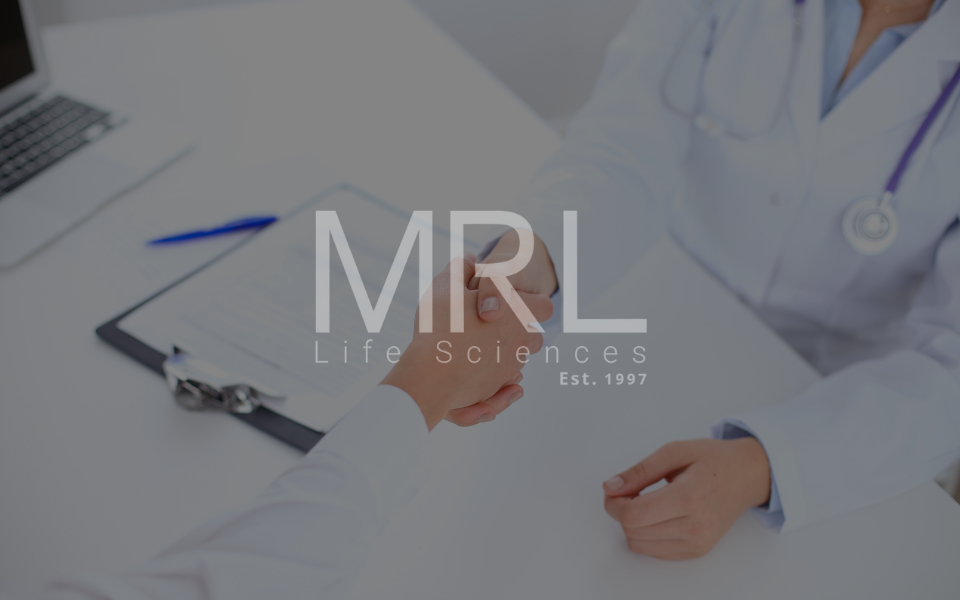The 10 Most In-demand Pharma Industry Jobs
30 Oct, 202310 minutesThe 10 Most In-Demand Pharma Industry JobsThe pharmaceutical industry, a field of innovation...

The 10 Most In-Demand Pharma Industry Jobs
The pharmaceutical industry, a field of innovation and life-saving discoveries, continues to evolve at a rapid pace. As healthcare needs and technological advancements grow, the demand for various roles within the pharmaceutical sector experiences shifts.
So, in this article, MRL explores the current ten most in-demand pharmacy industry jobs, shedding light on the skills and expertise required to excel in these positions.
10 Top Careers in Pharmaceutical Industry
Not only medical professionals can enter this fascinating industry. Here are the most in-demand jobs in pharma companies, along with the most crucial skills and qualifications required to excel in them:
1. Medical Science Liaison (MSL)
Role: MSLs bridge the gap between pharmaceutical companies and healthcare professionals. They serve as a scientific expert and educator in the pharmaceutical and medical device industries, acting as a bridge between healthcare professionals and their organizations. They provide information on products, therapies, and scientific advancements, build relationships with Key Opinion Leaders, offer clinical and scientific support, and gather feedback to inform strategic decisions. MSLs are vital in disseminating medical and scientific knowledge and ensuring healthcare professionals have the information they need for patient care.
Skills and Qualifications for MSL Role:
- Strong scientific background in a relevant field (e.g., pharmacy, medicine, biology)
- Excellent communication and presentation skills
- In-depth knowledge of therapeutic areas and medical literature
- Ability to build and maintain professional relationships
- Analytical skills to interpret and convey complex scientific data
- Strategic thinking to align medical strategies with business objectives
2. Clinical Research Associate (CRA)
Role: Clinical Research Associates ensure the smooth running of clinical trials by overseeing and monitoring them. Their role is instrumental in maintaining regulatory compliance and data integrity, ensuring that they are conducted ethically, according to protocol, and in compliance with regulatory standards. They protect study participants' rights, safety, and data integrity while facilitating communication between the research site and the sponsor or organization.
Skills and Qualifications for CRA Role:
- Knowledge of Good Clinical Practice (GCP) and regulatory requirements
- Strong attention to detail for data accuracy and protocol adherence
- Excellent organizational and time management skills
- Effective communication and interpersonal skills for site interactions
- Data management and analytical skills
- A bachelor's degree in a relevant field (e.g., life sciences or nursing) is often required
3. Pharmacists
Role: Pharmacists are responsible for medication management and patient care. They dispense medications, offer patient counseling, ensure medication safety, collaborate with healthcare providers, and may manage pharmacy operations. They work in various settings, including hospitals, retail pharmacies, and pharmaceutical companies.
Skills and Qualifications for Pharmacists:
- Doctor of Pharmacy (Pharm.D.) degree and state licensure
- In-depth knowledge of pharmacology, drug interactions, and medical conditions
- Ongoing learning to stay current with pharmacy and healthcare practices
- Empathy and a commitment to patient well-being
4. Clinical Data Manager
Role: A Clinical Data Manager (CDM) oversees data collection, organization, and quality control in clinical trials and research studies. Their key tasks include data collection and entry, data validation and quality control, database management, standardization, data cleaning, regulatory compliance, data analysis support, data transfer and reporting, and coordination with various stakeholders. They ensure data accuracy, integrity, and compliance with regulatory guidelines.
Skills and Qualifications for CDM Role:
- Strong understanding of clinical research and trial processes
- Proficiency in data management and database software, such as EDC systems
- Knowledge of regulatory requirements
- Attention to detail and the ability to identify data anomalies and discrepancies
5. Regulatory Affairs Specialist
Role: A Regulatory Affairs Specialist ensures that a company's products comply with local, national, and international regulations in regulated industries. They develop regulatory strategies, prepare submissions to regulatory authorities, educate medical professionals, monitor compliance, and liaise with authorities. Their work includes ensuring product quality, managing documentation, supporting clinical trials, and addressing post-market issues.
Skills and Qualifications for Regulatory Affairs Specialists:
- In-depth knowledge of relevant regulations and guidelines
- Strong attention to detail and organization for managing documentation
- Project management skills for handling multiple regulatory projects
- Quality assurance and risk assessment expertise
- Familiarity with industry-specific software and tools for regulatory submissions and documentation
6. Biostatistician
Role: Biostatisticians specialize in applying statistical methods to biological and healthcare research. They design experiments, analyze data, and interpret findings to support clinical trials, epidemiological studies, and other scientific research. Their work is critical for ensuring the validity and reliability of research outcomes.
Skills and Qualifications for Biostatisticians:
- Strong statistical expertise and knowledge
- Proficiency in statistical software (e.g., SAS, R, SPSS) and programming languages (e.g., Python, R)
- Data analysis and interpretation skills
- Effective communication to convey complex statistical findings
- Attention to detail and problem-solving abilities for data quality control
- A master's degree in statistics or public health is often required or recommended
7. Quality Assurance/Quality Control (QA/QC) Professionals
Role: QA/QC professionals are guardians of pharmaceutical product quality. They ensure adherence to strict quality and safety standards, playing a pivotal role in manufacturing and product release. They conduct inspections, tests, audits, and root cause analyses while promoting a culture of quality within their organizations.
Skills and Qualifications for QA/QC Professionals:
- In-depth knowledge of industry-specific quality standards and regulations
- Attention to detail and analytical skills for inspections, testing, and root cause analysis
- Effective problem-solving abilities for corrective and preventive actions
- Proficiency in documentation and record-keeping
- Expertise in risk assessment and risk management
- Familiarity with quality management systems (e.g., ISO 9001)
- Regulatory compliance knowledge relevant to the specific industry
8. Pharmaceutical Sales Representatives
Role: Sales representatives are the frontline advocates for pharmaceutical products. They promote and sell these products to other medical professionals, driving product adoption and market success. They provide information, samples, and support while complying with regulatory guidelines and achieving sales targets.
Skills and Qualifications for Pharmaceutical Sales Representatives:
- Effective communication and interpersonal skills for building rapport with healthcare professionals
- In-depth understanding of pharmaceutical products, including mechanisms of action, benefits, and side effects
- Ability to stay updated on evolving medical devices, regulations, and industry trends
- Sales and negotiation abilities to meet and exceed sales targets
- Many employers prefer candidates with a bachelor's degree, often in a related field like life sciences, pharmacy, or business
- Completion of training provided by the pharmaceutical company, including product and regulatory knowledge
- Some regions or companies may require a pharmaceutical sales license or certification
9. Research and Development (R&D) Scientists
Role: R&D scientists are the pioneers of drug discovery and development. They work on creating new drugs and enhancing existing ones, pushing the boundaries of medical science.
Skills and Qualifications for R&D Scientists:
- A strong foundation in the relevant scientific field
- Proficiency in research methods, experimental design, and data analysis
- Strong analytical and problem-solving skills for hypothesis testing and innovation
- Creativity and the ability to generate novel ideas and concepts
- Effective communication skills for presenting research findings and collaborating with teams
- Proficiency in laboratory techniques, instrumentation, and software used for data analysis
- Organizational and project management skills to plan and execute research projects
10. Medical Writers
Role: Medical writers are wordsmiths with scientific acumen. They play a vital role in the healthcare and pharmaceutical industries by translating complex medical and scientific information into accessible and accurate written content for various audiences. Their work supports clinical research, regulatory compliance, patient education, and scientific communication.
Skills and Qualifications for Medical Writers:
- A strong foundation in medical and scientific concepts and terminology
- Exceptional writing and editing skills, including attention to detail and adherence to style guides
- Familiarity with regulatory requirements for clinical and pharmaceutical documentation
- The ability to conduct literature reviews and gather information from scientific sources
- Effective communication and collaboration with subject matter experts and cross-functional teams.
Adapting to Industry Trends
It's important to note that the demand for these roles can fluctuate with changing industry trends. Recent events, such as the COVID-19 pandemic, have profoundly impacted pharmaceutical priorities, influencing job demands in areas like vaccine development and manufacturing.
As the pharmaceutical industry continues to advance, professionals must remain adaptable and informed, ready to embrace the evolving landscape. Whether considering a career in pharmaceuticals or looking to pivot within the industry, understanding the most in-demand roles is a vital first step toward a fulfilling and impactful career in healthcare and innovation.
Why Enter the Pharma Industry?
Working in the pharmaceutical industry offers a range of compelling reasons to consider it as a career choice. First and foremost, the impact on healthcare is a driving force for many professionals. In this industry, you can directly contribute to the development and production of life-saving drugs and treatments, significantly impacting the health and well-being of individuals and communities.
Furthermore, the pharmaceutical sector is known for its culture of innovation. It constantly pushes the boundaries of scientific and technological advancements, making it an exciting and dynamic field for those who are passionate about cutting-edge research and development. The quest for new discoveries and breakthroughs is a driving force in the industry.
Job stability is another attractive feature of the pharmaceutical industry. It tends to be less vulnerable to economic fluctuations than other sectors, providing a sense of security for professionals. Moreover, competitive salaries and comprehensive benefits are often offered to attract and retain top talent.
The industry also offers diverse career opportunities. Whether you're interested in research and development, sales and marketing, quality control, regulatory affairs, clinical trials, or other areas, the pharmaceutical field provides a broad spectrum of roles that can align with your skills and interests.
The pharmaceutical sector also has a global reach, and the work done in this industry can profoundly impact healthcare worldwide, potentially improving the lives of people across the globe.
Collaboration is a key aspect of working in pharmaceuticals. Professionals have the opportunity to work with multidisciplinary teams, including scientists, researchers, healthcare experts, and business professionals. This collaborative environment fosters a dynamic and stimulating work atmosphere.
For those seeking career growth, the pharmaceutical industry provides numerous opportunities. Ongoing developments in healthcare and technology mean that there is always room for advancement, making it an attractive choice for individuals at various career stages.
Interested in Pursuing a Career in This Industry?
The pharmaceutical industry is an excellent fit for those who want to make a meaningful impact on healthcare, engage in pioneering scientific work, and enjoy a stable and rewarding career. If you're passionate about improving people's health and well-being, this industry offers a fulfilling and purpose-driven path.
At MRL, we have a strong track record of partnerships with leading pharmaceutical firms and key players in the life sciences arena. Whether you're seeking your next career challenge or exploring exciting job prospects in this dynamic industry, our dedicated team of recruiters can guide you every step of the way. Contact us today and experience how we can help you fulfill your professional ambitions.




